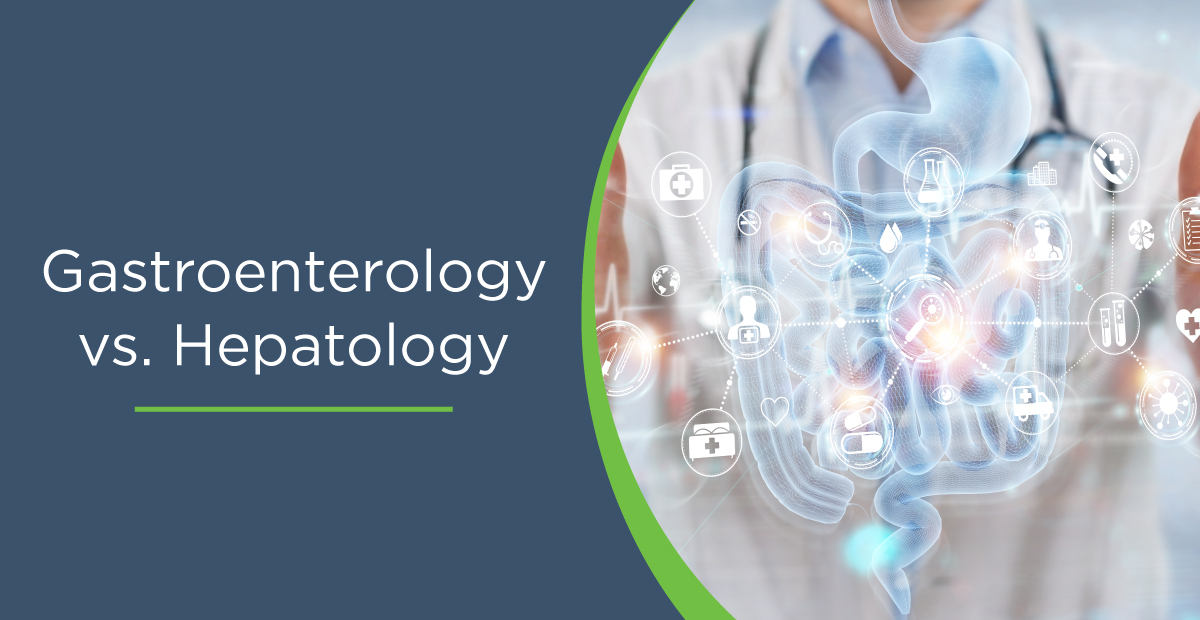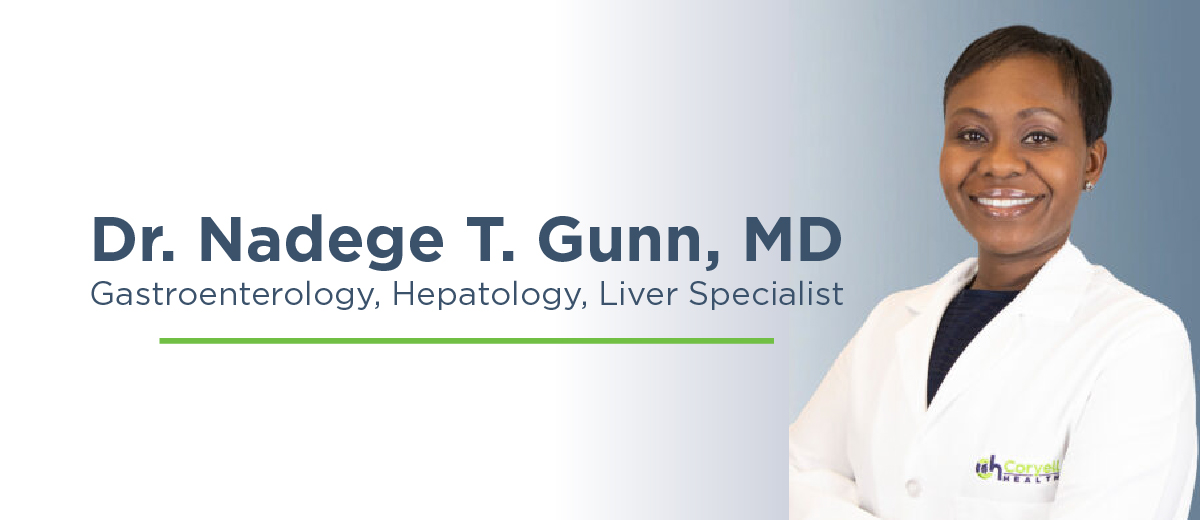
July 21, 2022
Medical terminology can be confusing and hard to understand. At Coryell, we want to make sure that our patients are well-informed and able to make the best decisions possible for their health.
Today, we’re going to break down the difference between Gastroenterology and Hepatology. While those words sound very different, they’re actually more similar than you’d think! Hepatology is a subspecialty of Gastroenterology, meaning that often, physicians practice both.
Gastroenterology is a branch of medicine focused on the digestive system and its disorders. It encompasses the diseases that affect the organs along your gastrointestinal tract, including the liver, stomach, intestines, pancreas and gallbladder. Gastroenterologists are able to diagnose and treat digestive disorders such as liver disease, ulcers, irritable bowel syndrome and some cancers.
There are a few signs that you should seek help and make an appointment with a gastroenterologist, including:
- Unexplained changes in your bowel habits, such as diarrhea, constipation and blood in stool
- Unusual bloating
- Frequent and severe heartburn
- Sudden and severe abdominal pain
- You’re due for a colonoscopy
If you’re having any of those symptoms, a gastroenterologist may be able to help you by performing an exam and potentially diagnosing one of the following:
- Gastroesophageal reflux disease (GERD)
- Hemorrhoids
- Inflammatory bowel disease (IBD), which includes Crohn’s disease and ulcerative colitis
- Irritable bowel syndrome (IBS)
- Pancreatitis
- Ulcers
- Autoimmune and genetic liver disorders

Hepatology is more specifically focused on the liver, gallbladder, biliary tree and pancreas. There are a few specific reasons you may be referred to a hepatologist, including:
- Liver injury caused by medication
- Gastrointestinal bleeding from portal hypertension
- Jaundice
- Ascites
- Enzyme defects
- Blood tests that indicate liver disease
A hepatologist will be able to diagnose disorders including:
- Hepatitis infections
- Fatty liver disease, alcohol-related and not
- Jaundice
- Cirrhosis
- Metabolic liver diseases
- Liver cancer
Coryell offers a full service esophagogastroduodenoscopy (EGD) program, which involves a test that examines the lining of the esophagus, stomach and first part of the small intestine. We also have a colonoscopy program, as well as a minimally invasive surgery program with two surgeons focused on esophageal, gastric, intestinal and bariatric surgery.
Dr. Nadege Gunn is Coryell’s new Hepatologist who specializes in treating patients with chronic liver disease. She is also a Medical Advisory Member for the American Liver Foundation and the Fatty Liver Foundation. Call (254) 865-2166 to schedule an appointment with Dr. Gunn today.
 Skip to content
Skip to content
